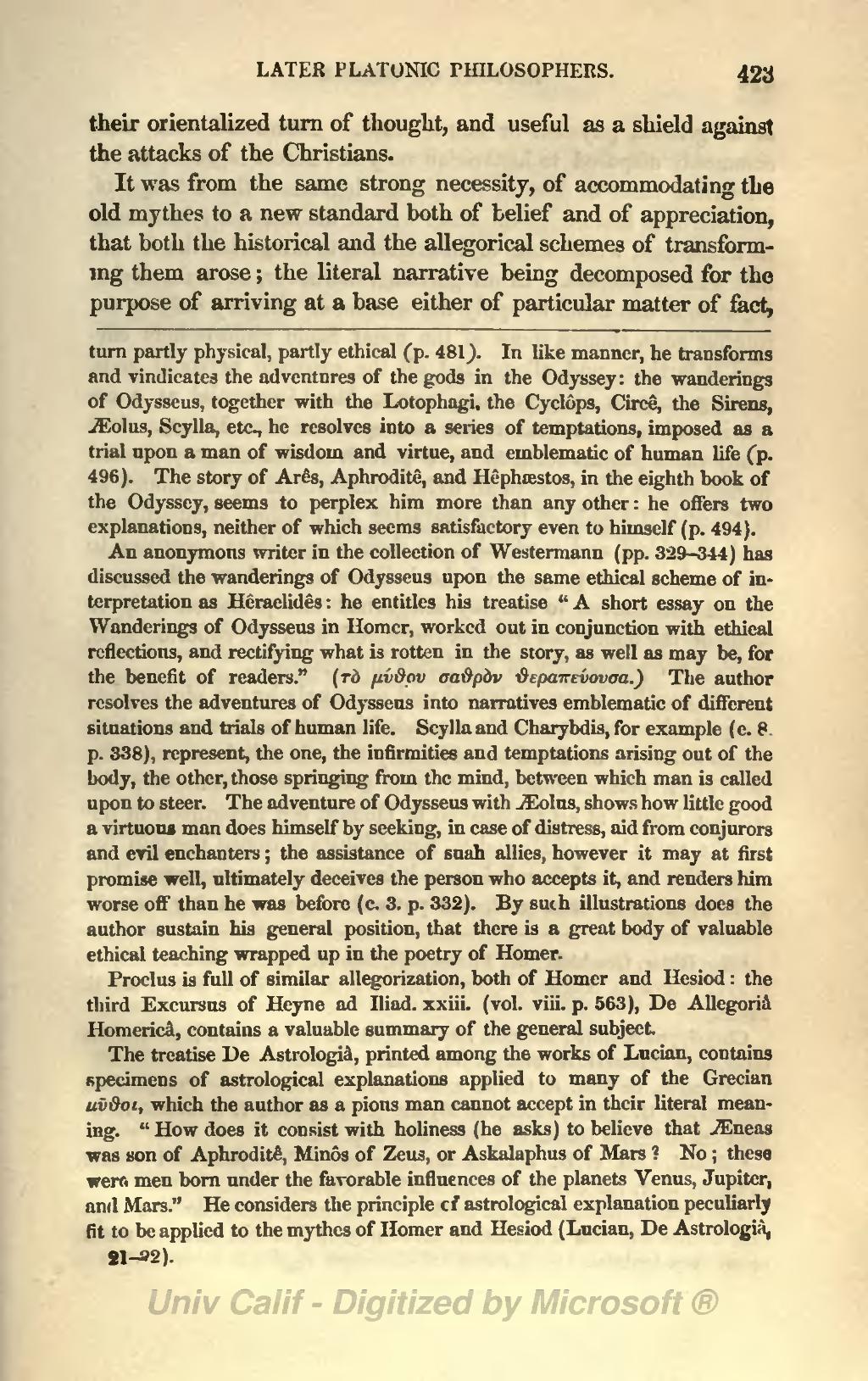LATEK PLATONIC PHILOSOPHERS. 423 their orientalized turn of thought, and useful as a shield against the attacks of the Christians. It was from the same strong necessity, of accommodating the old mythes to a new standard both of belief and of appreciation, that both the historical and the allegorical schemes of transform- ing them arose ; the literal narrative being decomposed for the purpose of arriving at a base either of particular matter of fact, turn partly physical, partly ethical (p. 481). In like manner, he transforms and vindicates the adventures of the gods in the Odyssey : the wanderings of Odysseus, together with the Lotophagi, the Cyclops, Circe, the Sirens, ^Eolus, Scylla, etc., he resolves into a series of temptations, imposed as a trial upon a man of wisdom and virtue, and emblematic of human life ("p. 496). The story of Ares, Aphrodite, and Hephsestos, in the eighth book of the Odyssey, seems to perplex him more than any other : he offers two explanations, neither of which seems satisfactory even to himself (p. 494). An anonymous writer in the collection of Westermann (pp. 329-344) has discussed the wanderings of Odysseus upon the same ethical scheme of in- terpretation as Heraclides : he entitles his treatise " A short essay on the Wanderings of Odysseus in Homer, worked out in conjunction with ethical reflections, and rectifying what is rotten in the story, as well as may be, for the benefit of readers." (rd /iv&ov aaftpbv depai^evovaa.) The author resolves the adventures of Odysseus into narratives emblematic of different situations and trials of human life. Scylla and Charybdis, for example (c. 8. p. 338), represent, the one, the infirmities and temptations arising out of the body, the other, those springing from the mind, between which man is called upon to steer. The adventure of Odysseus with jEolus, shows how little good a virtuous man does himself by seeking, in case of distress, aid from conjurors and evil enchanters ; the assistance of suah allies, however it may at first promise well, ultimately deceives the person who accepts it, and renders him worse off than he was before (c. 3. p. 332). By such illustrations does the author sustain his general position, that there is a great body of valuable ethical teaching wrapped up in the poetry of Homer. Proclus is full of similar allegorization, both of Homer and Hesiod : the third Excursus of Heyne ad Iliad, xxiii. (vol. viii. p. 563), De AllegoriA Homerica, contains a valuable summary of the general subject. The treatise De Astrologia, printed among the works of Lucian, contains specimens of astrological explanations applied to many of the Grecian uii&ot, which the author as a pious man cannot accept in their literal mean- ing. " How does it consist with holiness (he asks) to believe that JEneas was son of Aphrodite, Minos of Zeus, or Askalaphus of Mars ? No ; thesa were men born under the favorable influences of the planets Venus, Jupiter, and Mars." He considers the principle cf astrological explanation peculiarly fit to be applied to the mythes of Homer and Hesiod (Lucian, De Astrologia, 21-92).
